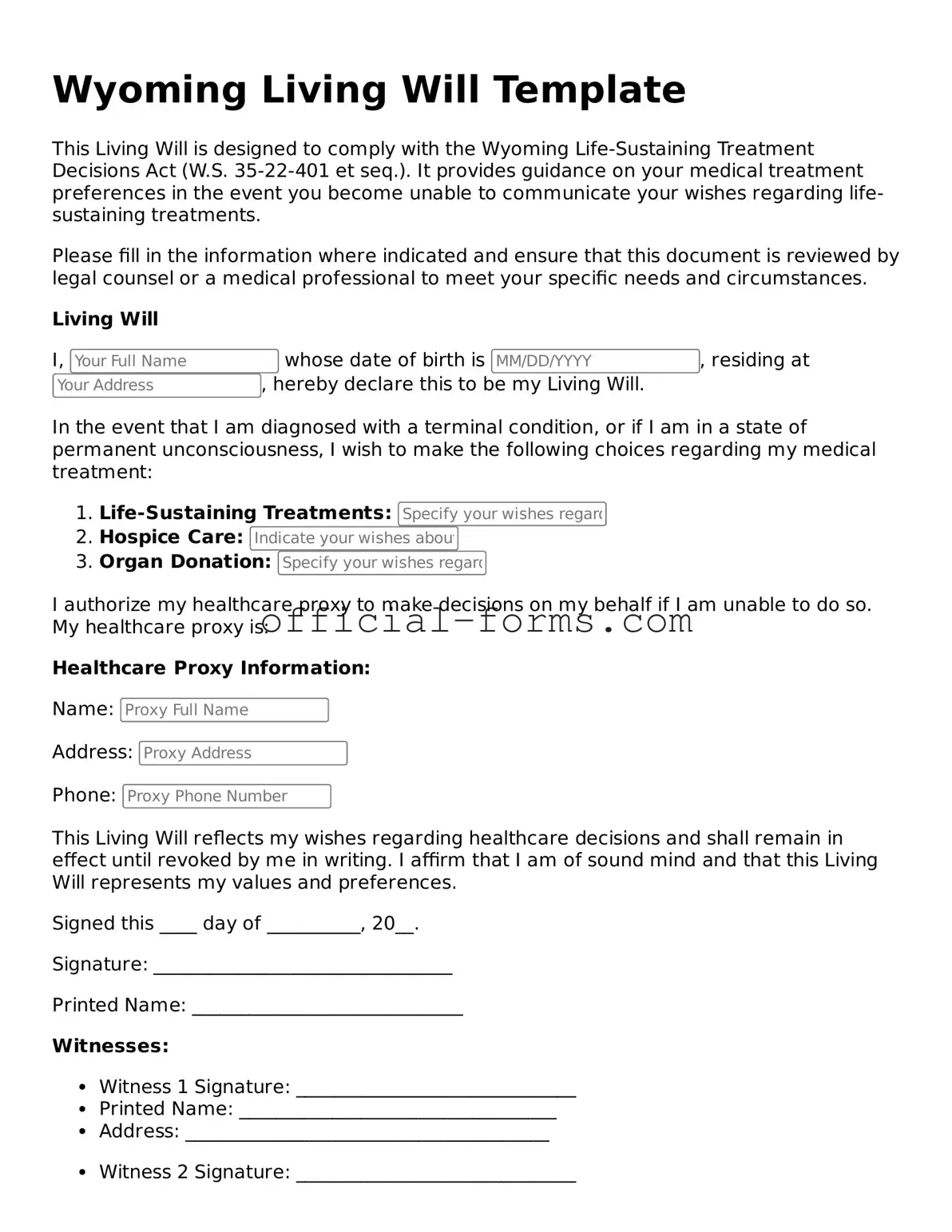Official Wyoming Living Will Document
A Wyoming Living Will form is a legal document that allows individuals to express their wishes regarding medical treatment in case they become unable to communicate their preferences. This form ensures that a person's healthcare decisions are respected, particularly in critical situations. Understanding its importance can help individuals make informed choices about their end-of-life care.
Open My Living Will Now

Official Wyoming Living Will Document
Open My Living Will Now
Don’t leave your form incomplete
Finish Living Will online quickly from start to download.
Open My Living Will Now
or
➤ PDF
